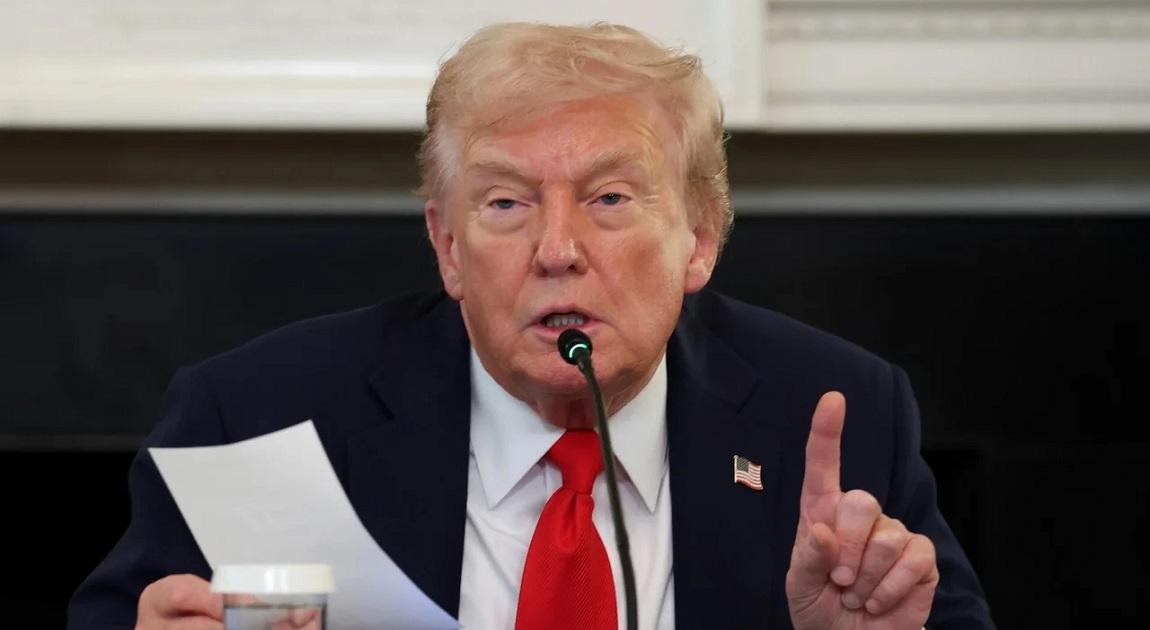US President Donald Trump has announced a fresh 100% tariff on imports from China, on top of the existing 30% rate — bringing the total effective tariff to nearly 130%. The new tariff could take effect by November 1 or earlier, according to his post on Truth Social on Friday.
In his statement, Trump declared, “An additional 100% tariff will be imposed on top of what China is currently paying.” He also announced new export controls on key software imports from China, signaling a further escalation in the ongoing US-China trade tensions.
The move comes in response to China’s new restrictions on the export of rare earth minerals, which are vital for the production of electronics, semiconductors, and military technologies. Trump described China’s actions as “an economic hostage strategy” and is reportedly canceling a planned meeting with Chinese President Xi Jinping later this month in South Korea.
Following the announcement, global financial markets saw sharp declines. At Friday’s close, the Dow Jones Industrial Average fell 878 points (1.9%), the S&P 500 dropped 2.7%, and the tech-heavy Nasdaq Composite plunged 3.5%. Investors fear a repeat of last year’s turbulence, when tariffs on Chinese goods hit as high as 145%, triggering widespread panic in the markets.
Although the US and China remain deeply interdependent trading partners, their relationship has been increasingly strained in recent years. Last year, when Trump imposed tariffs of up to 145% on Chinese goods, the US economy suffered significant shocks, forcing the administration to later reduce the rate to 20% — seen as an implicit acknowledgment of the economic damage.
In May this year, the two countries reached a temporary de-escalation agreement: China cut tariffs on US goods from 125% to 10%, while the US reduced its tariffs on Chinese products from 145% to 30%. The move briefly boosted investor confidence and lifted both nations’ stock markets.
However, tensions resurfaced as China allegedly failed to meet its commitment to increase rare mineral exports. In response, the US restricted the sale of certain American technologies — including NVIDIA’s AI chips — to China, although some restrictions were later eased. Most recently, the Trump administration announced new tariffs on goods shipped via Chinese-owned vessels, prompting Beijing to impose reciprocal duties on American ships.
Legal uncertainty still hangs over Trump’s new tariff plan, as its implementation depends on the outcome of a pending US Supreme Court case that could determine the limits of presidential authority on trade actions. Until that ruling is delivered, the future of this renewed trade war remains uncertain.




-20260226080139.webp)



-20260223082704.webp)










-20260225072312.webp)










-20260219054530.webp)
-20260224075258.webp)





-20260221022827.webp)